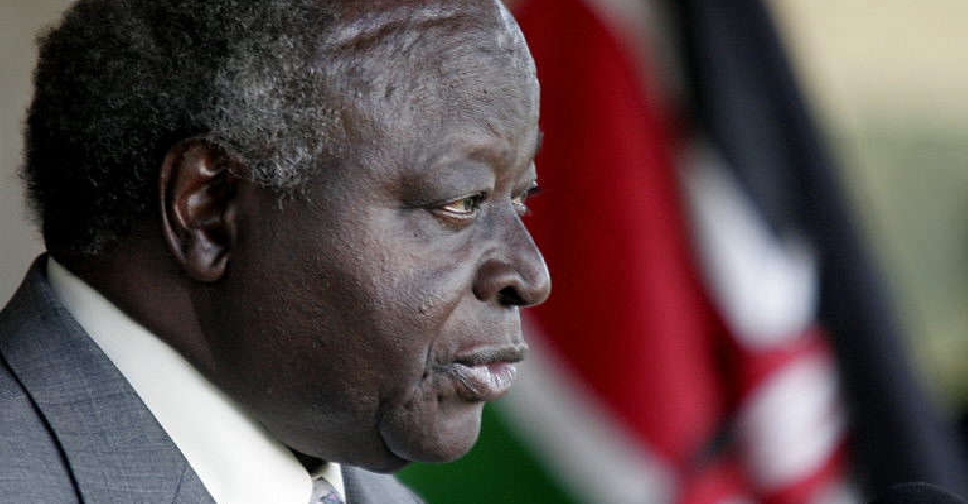
Mwai Kibaki, who ushered in economic reforms and a new constitution but struggled to tackle widespread corruption as Kenya's third president from 2003-2013, has died aged 90.
A British-educated economist, Kibaki's unflappable demeanour concealed political guile that finally won him the presidency after four decades as lawmaker, government minister and then vice president to his predecessor, Daniel arap Moi.
Kibaki, whose death was announced by President Uhuru Kenyatta, is credited with reviving Kenya's then ailing economy, but his tenure was marred by deadly violence that killed more than 1,200 Kenyans following his disputed re-election in December 2007.
The opposition had been far ahead when journalists were hurriedly ejected from the election commission. Hours later, Kibaki's win by a narrow margin was announced. Smoke immediately began rising from fires lit by protesters.
While announcing Kibaki's death, Kenyatta recalled his long public service, including being a member of parliament for five decades.
"Kibaki was a quintessential patriot whose legacy of civic responsibility will continue to inspire generations of Kenyans long into our future," Kenyatta said in a televised address.
Kenyatta did not state the cause of death but Kibaki has been ailing for some time, domestic media reported.
Politicians took a break from campaigning for a general election scheduled for Aug. 9, to mourn Kibaki.
"He stood firm and laid the foundation for the economic fruits that Kenya is experiencing today," said Musalia Mudavadi, who is backing Deputy President William Ruto in the presidential contest.
But Kibaki failed to tackle endemic graft, which remains a key demand of voters in the upcoming polls that pit Ruto against Raila Odinga, a former veteran opposition leader now embraced by the political establishment.
Kibaki had also tried to bring peace to regional hotspots, said Moses Wetengula, who served in the cabinet. "As his foreign minister, I ran many missions to stabilise Somalia and other pockets of instability including Congo," Wetangula said.
Kenyan peacekeepers are still serving in southern Somalia.

 UK inquiry finds 'chilling' cover-up of infected blood scandal
UK inquiry finds 'chilling' cover-up of infected blood scandal
 Iranian President Raisi killed in helicopter accident, state media says
Iranian President Raisi killed in helicopter accident, state media says
 ICC prosecutor seeks arrest warrants for Israeli, Hamas leaders
ICC prosecutor seeks arrest warrants for Israeli, Hamas leaders
 Assange given permission to appeal against US extradition
Assange given permission to appeal against US extradition
 Israel intends to broaden Rafah sweep, Defence Minister tells US
Israel intends to broaden Rafah sweep, Defence Minister tells US




